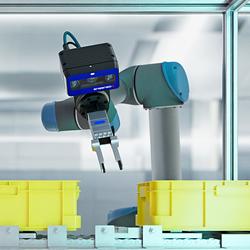Edinburgh Scientists Launch Crowdfunding for Robots that Repair Coral Reefs
Coral ecosystems support around 500,000,000 people, but are severely threatened; the Coralbots team aim to revolutionize how such threats are tackled. Their Kickstarter campaign (closing May 26th) seeks individuals and corporations who wish to make a lasting positive impact on the marine environment, offering ways for individuals, schools and corporations to be directly involved.
Edinburgh 7 May 2013
The ocean covers over 70% of the planet, but is threatened by multiple stressors such as bottom fishing, pollution and climate change. Coral reefs support the livelihoods of almost half a billion people; marine litter affects around half of all marine mammals and kills almost a million seabirds per year. These threats require active and urgent intervention to ensure global sustainability of human livelihoods and biodiversity. Currently, habitat remediation or restoration can only be achieved in small patches. In deep sea ecosystems, these tasks are also too dangerous for direct human intervention.
The Coralbots team is comprised of scientists and engineers committed to addressing these threats using innovations in computing, marine biology, and undersea robotics to revolutionize how such threats are addressed, combining autonomous underwater robotics with 'swarm intelligence.' Nature shows how groups or swarms of organisms (e.g. bees and termites) operate collectively to achieve complex objectives. The Coralbots team plan to deploy teams of autonomous underwater robots to restore and rebuild damaged coral reefs.
The first future mission will restore reefs damaged by hurricanes and ship groundings in Belize. Running until May 26th 2013, the team have a project on Kickstarter to help accelerate this mission.
Individuals, schools and corporations are invited to work with them, by contributing directly to the Kickstarter campaign, and taking up the opportunity to be directly involved. Involvement will be centred on helping the team accelerate development around the many 'artificial intelligence' tasks in the project, ranging from recognition of coral in images, to robot stability in strong currents, while the team will provide educational packages and interaction with schools. This project represents a glimpse of the future, where robotic intelligence works alongside human activity to repair, restore and protect the future of the global environment.
Featured Product

3D Vision: Ensenso B now also available as a mono version!
This compact 3D camera series combines a very short working distance, a large field of view and a high depth of field - perfect for bin picking applications. With its ability to capture multiple objects over a large area, it can help robots empty containers more efficiently. Now available from IDS Imaging Development Systems. In the color version of the Ensenso B, the stereo system is equipped with two RGB image sensors. This saves additional sensors and reduces installation space and hardware costs. Now, you can also choose your model to be equipped with two 5 MP mono sensors, achieving impressively high spatial precision. With enhanced sharpness and accuracy, you can tackle applications where absolute precision is essential. The great strength of the Ensenso B lies in the very precise detection of objects at close range. It offers a wide field of view and an impressively high depth of field. This means that the area in which an object is in focus is unusually large. At a distance of 30 centimetres between the camera and the object, the Z-accuracy is approx. 0.1 millimetres. The maximum working distance is 2 meters. This 3D camera series complies with protection class IP65/67 and is ideal for use in industrial environments.
